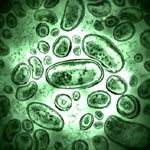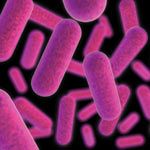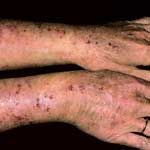Hayfever – something to sneeze at.
Hayfever sufferers know the misery of their condition all too well – red, itchy eyes, runny, stuffy nose, itchy throat and uncontrollable sneezing. For those who don’t suffer from this affliction, you may think of hayfever as something that only happens in spring. But hayfever can happen at any time of year.
Hayfever is a very common condition, which affects millions of people worldwide and is becoming more common in Australia every year. It’s also known as seasonal allergic rhinitis, as hayfever is caused by the sufferer coming into contact with something they’re allergic too. Different things can trigger hayfever in different people. The most common things that cause hayfever are weed, grass or tree pollen, cigarette smoke, animal fur and mould spores. When the sufferer comes into contact with the substance they’re allergic too, their immune system over-reacts, resulting in irritation and inflammation. Other things which can aggravate the condition are the weather and air quality. People usually begin to develop hayfever in late childhood or early adulthood. Around 60 per cent of sufferers have a family history of allergies, such as hayfever, eczema or asthma. In some cases, the symptoms of ha fever can be so severe that the sufferer can’t sleep or concentrate, and may feel tired or sick. You can reduce the symptoms of hayfever by:
- Checking the pollen count forecast on television or in the newspaper – stay indoors if it’s high;
- Stay inside as much as possible in spring and on summer evenings, on windy days or after thunderstorms;
- Keep windows and doors closed, especially in spring and summer, and at night when you’re sleeping;
- Vacuum your house regularly;
- Air bedclothes in the sun;
- If you have a garden, try to choose plants that are pollinated by birds or insects, rather than plants that release their seeds into the air.
- Splash your eyes with cold water to flush out any pollen;
- Reduce your exposure to dust and dust mites, animals and animal hair or fur; and
- Avoid smoke and chemical fumes.
Some medicines can also help control the symptoms of hayfever. They include:
- Nasal sprays
- Antihistamines
- Eye drops
Always ask your doctor or pharmacist before taking any medication.







Comments are closed.